SHOWCASE’s team is composed of 23 member organisations, spread across 15 countries: Austria, Belgium, Bulgaria, Estonia, France, Germany, Hungary, Italy, Netherlands, Portugal, Romania, Spain, United Kingdom, Sweden, and Switzerland.
To know more about each organisation and its members, click on a country on the map.
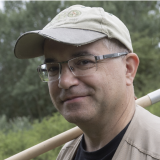
Dr András Báldi
Conservation biologist
Dr András Báldi of the Centre for Ecological Research is dedicated to providing research evidence for policies and practices relevant to biodiversity conservation. His team in SHOWCASE runs two Experimental Biodiversity Areas to provide evidence of the positive effects of restored wildflower-rich fields.
„I believe that demonstrating the positive effects of wildflower fields for farmers in their own system that is in Hungary, and not only referring to the international literature, will make a difference.” He argues that recent uncertainties of agricultural production in Eastern Europe created a need for immediate transformation of farming - and here SHOWCASE has a role.
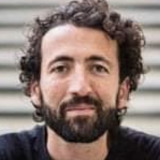
Dr Ignasi Bartomeus
Community ecologist
Ignasi Bartomeus is a community ecologist interested in understanding how different drivers of global change are affecting biodiversity and ecosystem functioning. His research focuses on pollinators and their function.
Within SHOWCASE, his team focuses on how agriculture impacts biodiversity and how biodiversity can help agriculture, as well as communication to farmers and policymakers. He puts an emphasis on achieving win-win solutions to conserve biodiversity and sustainable productivity.
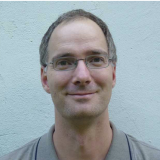
Dr Péter Batáry
Conservation biologist
Dr Péter Batáry of the Centre of Ecological Research focuses on conservation biological oriented research, such as the biological effectiveness of agri-environment schemes, habitat fragmentation and urbanisation on a wide range of terrestrial taxa and ecosystem services.
His team in SHOWCASE just started performing pilot experiments in vineyards on the role of birds and bats as biocontrol agents. Furthermore, they made a systematic review of arthropod biodiversity-yield trade-offs with promising meta-analyses. “We think that many farmers are interested in biodiversity-friendly farming, and hope that SHOWCASE will strengthen this.”
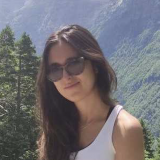
Nuria Chamorro
Science communicator
Nuria is a science communicator with a background in biotechnology, experienced in scientific and medical copywriting as well as in science journalism. She has an MSc in Science Communication and firmly believes in the importance of disseminating scientific knowledge to society. In SHOWCASE, she is researching strategies to promote biodiversity conservation in agriculture on social media.
Farmers, researchers, politicians…she tries to understand what are the best ways to reach the different audiences involved in SHOWCASE.
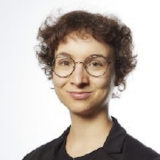
Chiara Durrer
PhD student
chiara.durrer@agroscope.admin.ch
Within SHOWCASE, Chiara joined Agroscope’s team and will contribute to the project’s research on functional farmland biodiversity to enhance stability in relation to climate change by working with cherry orchards to determine climate-relevant niches of dominant crop pollinators.
Chiara is excited to work with SHOWCASE's international team and thinks the project will lead to high quality and meaningful outcomes.
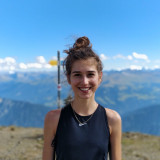
Maura Ganz
PhD student
maurakatinka.ganz@agroscope.admin.ch
Maura Ganz holds a Bachelor’s Degree in Biomedicine and a Master’s Degree in Quantitative and Systems Biology from the University of Zurich (UZH). She joined SHOWCASE in 2022 as part of Agroscope and the group that tackles functional biodiversity.
Maura wishes to find "solutions on how to mitigate biodiversity-productivity tradeoffs" and to develop tools and strategies that promote sustainable agriculture.
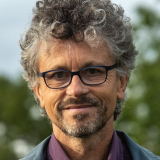
Dr Felix Herzog
Agronomist and landscape ecologist
felix.herzog@agroscope.admin.ch
Felix coordinates WP3, working to enhance the evidence base for synergies between biodiversity and agricultural production. He aims to make progress towards farming with nature and moving away from the antagonism between agriculture and biodiversity.
Felix's goal is to strengthen productive agricultural systems that also provide biodiversity and ecosystem services.
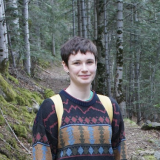
Amelia Hood
PostDoc
Amelia Hood is an ecologist, and, thanks to her work in the project, is also gaining expertise in social science. Within SHOWCASE, she is co-designing biodiversity interventions for arable farms with 16 farmers across England.
Amelia strives to understand how scientists and farmers can work together in a way that works for both parties, making it as easy as possible for farmers to take part in research and enjoy it.
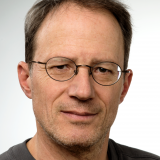
Dr Philippe Jeanneret
Entomologist and Agroecologist
philippe.jeanneret@agroscope.admin.ch
Philippe is coordinating the Swiss Experimental Biodiversity Area. He wishes to show that biodiversity can have a positive effect on production through (ecosystem) services such as the regulation of pests. He says that “future production systems of food will have to be designed with sustainable use of resources in mind, be nature-based and drastically reduce their environmental footprint.”
This can only be achieved by co-creating and implementing, among others, biodiversity-friendly actions that bring together farmers, scientists, extension services and other stakeholders.
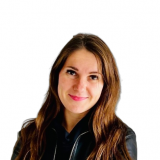
Aki Kadulin
PhD student
Aki specialises in the socio-economic analysis of semi-natural habitats. She is doing a PhD in semi-natural grasslands and their management. Previously, Aki worked as a financial auditor and she holds a degree in law, economics and environmental management and policy.
Aki joined SHOWCASE to find out the drivers of the abandonment of species-rich grasslands. She is described as someone who has passion and a systematic view.
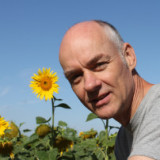
Prof David Kleijn
Project coordinator
SHOWCASE's project coordinator Prof David Kleijn is leading the group that focuses on nature conservation, climate change mitigation and the relation between biodiversity and ecosystem functioning. His team explores the ecological and socio-economic effects of biodiversity interventions on Dutch farmland.
Within SHOWCASE, he also contributes to the development of inspirational evidence-based stories on how farming and nature conservation can go together: "Nature conservation is not all sad stories! The study area in the Netherlands that we are working in saw the return of a nationally extinct bumblebee (𝐵𝑜𝑚𝑏𝑢𝑠 𝑠𝑦𝑙𝑣𝑎𝑟𝑢𝑚) this year", David added.
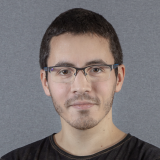
Dávid Korányi
PostDoc
Dávid Korányi joined SHOWCASE as a part of the Centre for Ecological Research. As a PostDoc, he examines the effect of the landscape on biodiversity and ecosystem functions at the Landscape and Conservation Ecology Group.
Within SHOWCASE, Dávid will determine the role of birds and bats as biocontrol agents in Hungarian vineyards. He believes that demonstrating the determinant role of birds and bats in the biological control of pest insects would help farmers develop more environmentally friendly plant protection strategies.

Alexandra Korcheva
Senior Communication Expert
Alexandra Korcheva is a Communications Officer at Pensoft, with experience in communications, policy, and academia. She is also an early-career researcher and PhD student, her thesis being in the field of environmental economics and new institutional economics. In her academic studies she explores the impact of digital technologies on crucial environmental indicators.
In SHOWCASE, she is the lead Communicator in WP4.
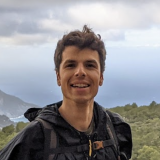
Bruno Martin
Science communicator and press officer
Bruno is a Biologist by training, but his professional background is in journalism, working as a science reporter. He has an MSc in Science Communication and is especially interested in the social side of science, as well as climate change communications. In Showcase, he is working on media relations for the Iberian EBAs, as well as researching and consulting on communication and environmental messaging on social media.
He tries to understand what messages related to science, conservation and biodiversity are most likely to connect and resonate with each audience — whether that’s journalists, farmers, politicians or schoolchildren!
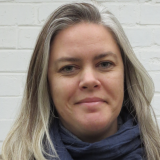
Dr Alice Mauchline
Ecologist
Alice is an ecologist working with a wide range of stakeholders on sustainable agricultural approaches. In SHOWCASE, she works on biodiversity monitoring and how it can help the development and integration of sustainable agricultural interventions.
Alice hopes her research will lead to more biodiversity-friendly farming.
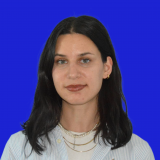
Neda Modova
Communication Expert
Neda Modova is a science communication expert at Pensoft Publishers. She brings a diverse educational background and extensive experience in marketing, communication, and community management with a BA in Liberal Arts and Science and a MSc in Marketing and Communication. Her global academic journey has taken her to cities, such as Brussels, Amsterdam, Boston and Barcelona.
Neda is involved in the communication and dissemination activities of SHOWCASE, as part of WP4.
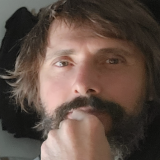
Curro Molina
Technician and entomologist
Within SHOWCASE, Curro does fieldwork to collect data, which is later on analysed in the laboratory. With his work, he contributes to the measurement of biodiversity in stone fruit trees and implements improvements that help increase it.
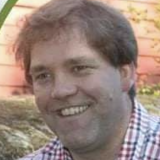
Assoc. Prof Erik Öckinger
Ecologist and conservation biologist
Dr Erik Öckinger is an ecologist and conservation biologist, focusing on understanding the processes that maintain biodiversity at local and regional scales, and the effects of human activities on biodiversity. His team at SHOWCASE evaluates how farmers and citizens can be involved in monitoring farmland biodiversity, and how this influences their attitudes towards biodiversity-friendly farming practices.
"We hope that by involving farmers in monitoring the effects of their farming on biodiversity, they will more directly see the benefits of biodiversity-friendly practices", Erik says.
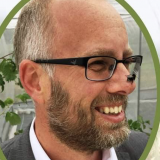
Prof Simon Potts
Professor of Biodiversity and Ecosystem Services
Simon Potts is a Professor of Biodiversity and Ecosystem Services, and Director of the Centre for Agri-Environmental Research. His research revolves around the interplay between land management, biodiversity, ecosystem services and food security.
Within SHOWCASE, his team works with farmers to find novel ways to make room for biodiversity on farms. "Biodiversity can help support food production through pollinating crops, reducing pest damage and making soils more fertile", Simon says.
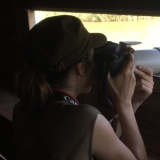
Clara Prieto
Art director
Clara has a BA in Graphic Design and Illustration. She is interested in infographics and user experience, as well as ecology and conservation. Clara reviews all the graphic materials for SHOWCASE and she is also in charge of the visual part of the app and the web platform. She enjoys transforming complex data into visual content and making it easy to understand for the general public.
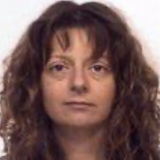
Assoc. Prof Meri Raggi
Statistician
Assoc. Prof Meri Raggi is a statistician helping SHOWCASE with the data to develop models to simulate policies that incentivise farmers to uptake on-farm biodiversity management. Collecting and analysing data properly is crucial to understanding farmers' responses and designing agri-environmental policies.
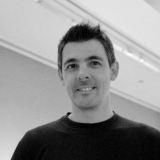
Prof Duccio Rocchini
Spatial ecologist
Prof Duccio Rocchini is a spatial ecologist dealing with remote
sensing for biodiversity evaluation. He aims to estimate how biodiversity
changes in space and time from drones and satellite images.
Within SHOWCASE, he is leading Task 1.4 on Testing the reliability of biodiversity indicators derived from landscape metrics.
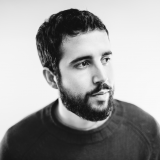
Lucas Sánchez
Director of communications
Lucas holds a PhD in Molecular Biology. However, he also has a passion for journalism and communication, which is why he ended starting his own science communication agency. He is especially interested in the psychological phenomena behind communication, exploring all possible narratives to communicate science, and how to design new tools to maximise its impact.
As the director of communications at Scienseed, he supervises the investigation on understanding the ecosystem of farmers in social media. As a former researcher and senior communicator, Lucas is able to combine years of experience in both fields to help with the design, supervision and analysis of research and communication strategies.
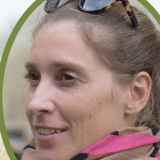
Dr Lena Schaller
Agricultural economist
Dr Lena Schaller is an agricultural economist with a focus on the provision of public goods and ecosystem services from agriculture and the agricultural/environmental policies and mechanisms related to sustainable and multifunctional agricultural management.
Within SHOWCASE, Lena and her team are leading the work on the identification, implementation and costs of incentives to promote biodiversity and ecosystem services in the SHOWCASE Experimental Biodiversity Areas (EBAs).
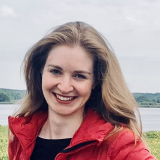
Verena Scherfranz
Agricultural economist
Verena is an agricultural economist, with professional experience in science communication with farmers. In SHOWCASE, she conducts agri-economic studies on farmers’ decision-making and the costs and benefits of pro-biodiversity practices.
With her work, Verena contributes to informing the design of broadly-based pro-biodiversity initiatives. Her main goal is to improve our understanding on how, together with farmers, we can move towards a prospering agricultural biodiversity.
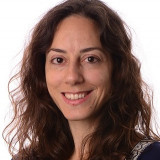
Hila Segre
Associate Researcher
Hila Segre is studying the relations between biodiversity, ecosystem functioning, and food production. After finishing her PhD in Israel where she worked on the cost-effectiveness of wildlife-friendly management in agriculture, she wishes to expand her knowledge and skills in this interdisciplinary question, which is why she joined SHOWCASE.
Hila studies how to improve the quality of existing interventions to promote more cost-effective conservation management. This far, SHOWCASE has been a great opportunity for her to collaborate with the best labs and to present her ideas and lead tasks, encouraging her to grow.
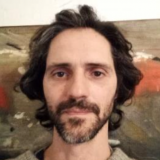
Asst. Prof Stefano Targetti
Agricultural economist
Asst. Prof Stefano Targetti works on understanding information value and improving it to facilitate farmers’ adoption of biodiversity-friendly practices. Information on biodiversity is complex and farmers’ view and perception of it is relevant for the effective adoption of biodiversity practices.
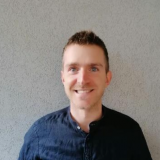
Michele Torresani
Associate Researcher at the Free University of Bolzano
Michele Torresani is a forest ecologist, working with remote
sensing data for the assessment of biodiversity. Using remote sensing data allows him to quickly estimate different aspects of biodiversity over vast areas.
Within SHOWCASE, he is involved in Task 1.3 and 1.4 for the
estimation of habitat heterogeneity, vegetation and pollinator diversity by the use of different remote sensing data.
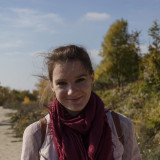
Flora Vajna
PostDoc
Flora Vajna has a BSc and an MSc in Biology. She joined SHOWCASE as part of the Centre for Ecological Research and is now in the final stages of her research on the feeding behaviour and morphology of the Clouded Apollo butterfly. With her research, Flora is contributing to SHOWCASE, while also developing her skills and knowledge on topics, such as agriculture and statistics.
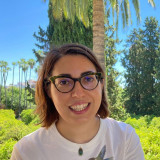
Elena Velado-Alonso
PostDoc
Elena has a multidisciplinary background, having studied Veterinary Medicine, followed by an MSc in Agroecology and a PhD in Ecology. Within SHOWCASE, she researches narratives on biodiversity and farming and supports the Spanish EBA.
Working in this real-life experiment helped her learn from and with farmers how to improve biodiversity conservation in agricultural systems. "I hope this project helps me advance my knowledge of biodiversity processes and functions in agroecosystems and get an in-deep background in the theory and application of ecology for agriculture."
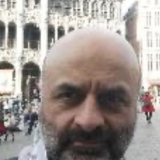
Prof Davide Viaggi
Agricultural economist
Prof Davide Viaggi is an agricultural economist, working on developing models to design better policies that incentivise farmers to uptake on-farm biodiversity management.
Properly designing agri-environmental policies provides more value from public money and, overall, increased welfare.
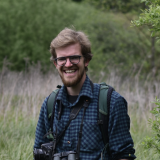
Reinier de Vries
PhD student
Reinier de Vries has a professional background in biodiversity and ecology in relation to environmental and land management factors. He studies the management of grassland biotopes on farmland and its effects on the delivery of multiple ecosystem services.
With his work in SHOWCASE, Reinier hopes to identify what factors enable the development of nature-inclusive grassland management that can unite biodiversity preservation with farming. He describes SHOWCASE as a diverse experience, which provided him with lots of opportunities, exciting contacts, and knowledge in new fields.
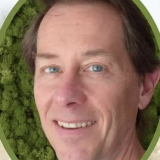
Prof Michiel Wallis de Vries
Professor in Insect Ecology & Conservation
michiel.wallisdevries@vlinderstichting.nl
Prof Michiel Wallis de Vries works on the impact of environmental change and land management on biodiversity, with a focus on butterflies as indicators of habitat quality.
Within SHOWCASE, Michiel's team addresses the involvement of citizen science in recording and monitoring flower-visiting insects. He hopes his work will encourage both farmers and local residents to include insect diversity as a core value of farmland management.






















